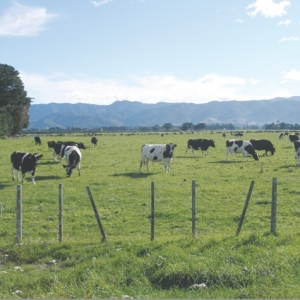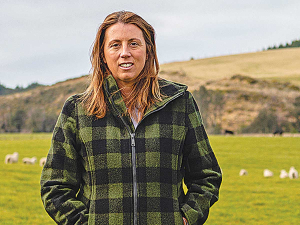Farm-Aid, a ready-to-use enzyme-fortified formula, is applied to farm effluent pond. It is distributed in New Zealand by Environmental Bio Solutions, a franchise of Environmental Biotech, US.
Local franchisee Mike Cooper says Farm-Aid has been shown to achieve a 25% increase in pasture growth and to reduce nitrogen leaching into a water table. Trial results are posted online at the firm’s website.
During trials in Waikato, Farm-Aid was applied to effluent paddocks. Tests by WaterCare Services, Auckland, showed “significant enhancement of the potassium and sulphur fractions in the treated effluent compared with the untreated control,” Cooper reports.
“Physical observation of the treated and control ponds by the farm staff showed a reduction of odour from the treated pond.”
Soil sampling of paddocks before and after effluent application on both farms was by Stuart Lumley, Altum. Soil testing of the sam-ples was by Hill Laboratories Ltd. Hamilton.
Effluent, treated and untreated, was applied to designated paddocks on the same day at the same rate of application (13 mls) well within the local body allowable application rate.
Grass growth after seven and fourteen days was measured on both paddocks by using a calibrated plate meter, Cooper says. “It was observed that the treated effluent paddock achieved an average growth rate of 95kgDM/day, compared to the control paddock average growth rate of 68kgDM/day.
“Soil sample analysis of treated and control paddocks showed that Nitrate-N + Nitrite-N* in the treated effluent paddock was nearly four times as great as the untreated paddock (42 mg/kg dry wt. as opposed to 11.2 mg/kg dry wt.).”
The analysis of the treated and untreated effluent before application showed virtually the same amount of total nitrogen (as N) in both samples. Therefore, it can be assumed that nitrogen in the treated effluent has been modified and is more readily taken up by the pasture which results in improved grass production, Cooper says.
Both farmers involved in the trial are said to have been impressed with the increased grass production achieved by the treat-ed effluent paddock and the ease with which the product can be applied to the effluent pond.
“The reduction in the odours given off the treated effluent, while not important to grass production, was noted as beneficial to the overall environment of the dairy operation.”
www.farm-aid.co.nz









